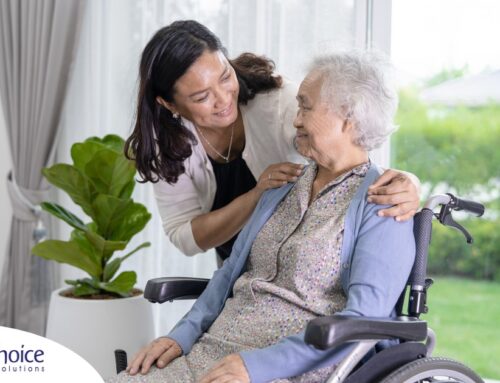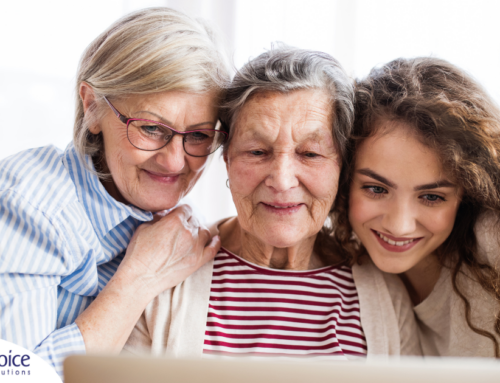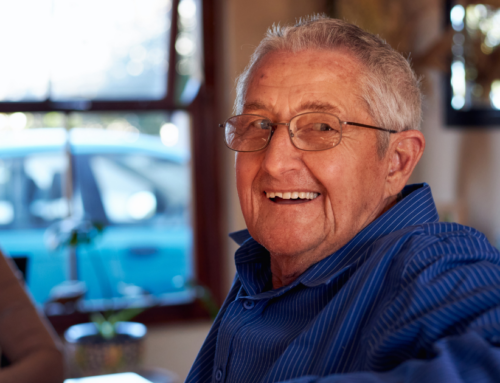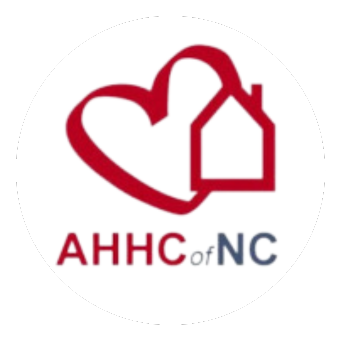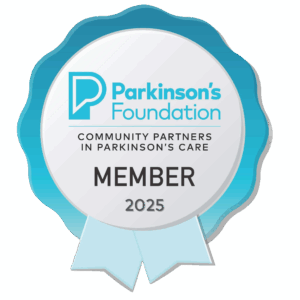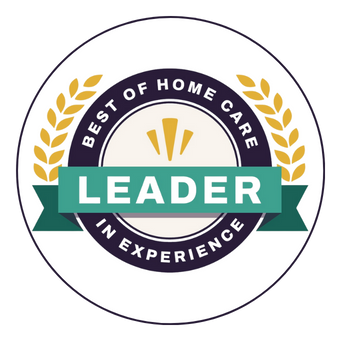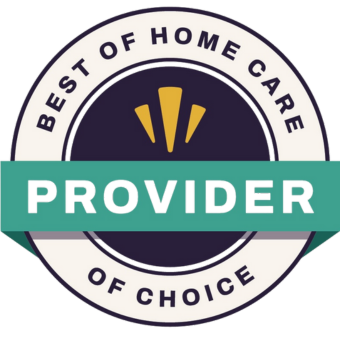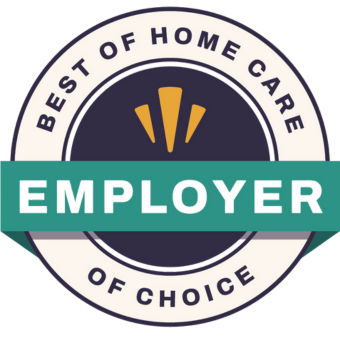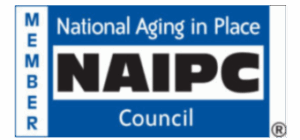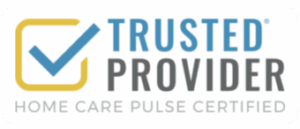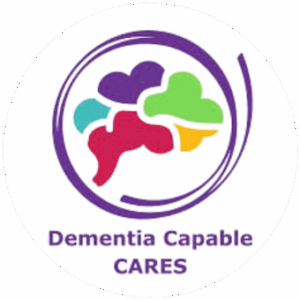Each year, millions of Americans selflessly donate their time and talents to look after aging, ill, and disabled friends and relatives. Most care for loved ones aged 65+. If you live in Raleigh, you may be one of them. Known as informal caregivers, these dedicated individuals must often juggle their caregiving duties with a household and part-time or full-time job. And although serving as an informal caregiver is highly gratifying, it can also lead to caregiver burnout. If not addressed, the health and well-being of both the caregiver and care recipient may be in jeopardy. What follows are several self-care tips for caregivers that will help keep burnout in check so your loved one receives the nurturing they deserve.
Signs and Symptoms of Caregiver Burnout
Regardless of their training or experience, most volunteer caregivers eventually reach a point when they feel overworked, overtired, and overstressed. Exhaustion, worry, inadequate resources, and strained relationships can be a caregiver’s constant companions.
The average caregiver is more likely to develop a chronic health condition, like elevated blood pressure, heart disease, or diabetes, than a non-caregiver. Assisting a loved one with dementia or Alzheimer’s can be overwhelming for even the most seasoned caregiving veterans.
Beware of these caregiver burnout warning signs:
- Sleep deprivation or sleeping too much.
- Anxiety and depression
- Difficulty performing simple everyday tasks.
- Rapid weight gain or weight loss
- Postponing or ignoring medical appointments
- Substance abuse, including prescription meds.
- Not exercising
- Poor eating habits
- Lack of interest in hobbies and activities once enjoyed.
- Social isolation
Ignoring these symptoms won’t make them go away. If allowed to persist, caregiver burnout will eventually sideline you and place your care recipient at risk.
Self-Care Tips for Family Caregivers in Raleigh
Taking these burnout-prevention steps as a caregiver will help ensure that you stay recharged and refreshed as the days become weeks, months, and even years:
Prioritize caregiving duties
Although it’s not easy to accept, no matter how hard you try your loved one’s condition will eventually get worse. Rather than allowing yourself to get overwhelmed, prioritize your daily tasks and focus on the most important ones — like getting Mom to her doctor’s appointment on time. After all, you’re only human, and Rome wasn’t built in a day!
Use a team approach
They say, “Many hands make light work,” and caregiving is no exception. Form a caregiving team made up of friends, relatives, and neighbors. Based on each member’s time and talents, clearly define their roles and responsibilities to avoid duplicating tasks.
For instance, if your sibling knows a lot about food and nutrition, ask them to help with Dad’s meal planning and preparation. If your best friend is a nurse, they could assist Mom with her medication management needs. Meet with your team regularly to discuss your loved one’s changing needs and how best to address them.
Avoid unhealthy habits
If you’re sick in bed (again) because you’re not taking care of yourself, start making some positive lifestyle changes. Eat a well-balanced diet, exercise regularly, and avoid unhealthy habits like smoking cigarettes or drinking alcohol to excess. Get a complete annual physical, and don’t ignore your other medical appointments.
Schedule some “me” time
Make time to participate in healthy stress-relieving activities like walking, swimming, cycling, or Yoga three to five times per week. Treat yourself at least once a month to a spa day or lunch with close friends. Seek professional counseling if negative feelings like anxiety, depression, and hopelessness persist.
Journal your thoughts
Another way to decompress is by keeping a daily caregiving journal. Journaling can be used to record positive and negative experiences you are going through — like the fact you were able to get Mom to eat everything on her dinner plate. When you’re having a bad day, go back and relive the good moments and focus on how your efforts are paying off.
Be sure to reward yourself
Not everyone has what it takes to be a successful caregiver. Reward yourself for a job well done by doing something you enjoy every week. Use your downtime to learn a new hobby, go clothes shopping, or just spend a few hours curled up on the couch binge-watching your favorite TV shows. Whatever you decide to do, don’t feel guilty for taking a break from your caregiving duties.
Seek professional caregiving assistance
Asking for help doesn’t make you a failure. Take a well-deserved break, or “respite,” by seeking relief through fellow volunteers or professional respite caregiving sources such as:
- Friends, neighbors, and relatives
- Community volunteers that work with the aging or disabled
- A meal delivery service
- Adult daycare
- A reputable home care provider
Bonus Tip: Use Modern Caregiving Technology
Many informal caregivers in Raleigh are now using these high-tech apps, gadgets, and services to save time and streamline care so they can avoid caregiver burnout:
Mobile phone apps
Mobile applications, or apps, are computer programs designed to run on a smartphone or tablet. There are apps for playing games, listening to music or audiobooks, or watching videos. Some apps can be downloaded for free, while others must be purchased through the Apple App Store (Apple devices) or Google Play (Android devices). Some of the best mobile apps for seniors include Find My iPhone, Pandora, Life360, and AARP Now.
Virtual medical appointments
Without leaving the house, telemedicine services like PlushCare, Teladoc, and MDlive now offer older patients convenient access to many of the same non-emergency services they would normally receive at their doctor’s office. By videoconferencing with a licensed doctor or nurse, seniors and caregivers can take advantage of virtual medical services, including checkups, urgent care, and mental health care.
Video chat platforms
COVID-19 has driven the demand for video conferencing and chatting services that can also be used by seniors to communicate with loved ones. Free services like Skype, FaceTime, and Zoom allow older adults to call loved ones and see their smiling faces even when they live far away. From checking in with their caregivers to interacting with grandchildren and friends, video chats are a great way for homebound seniors to stay safe and connected!
Medical alert systems
In-home falls and other accidents injure millions of older adults every year. Medical alert devices are one way to restore peace of mind for seniors and their caregivers. In the event of an emergency, a medical alert system like Medical Alert, LifeFone, or GetSafe allows the user to promptly notify first responders, dramatically reducing the time it takes for them to arrive at the home.
Ridesharing services
Older adults who can no longer drive, or prefer not to, can also benefit from ridesharing apps like Lyft and Uber. Once you’ve downloaded the mobile app on their phone – and showed them how to use it – your loved one can enter their destination and choose a ride. For security purposes, the app will alert you once the driver has arrived at their home.
Innovative In-Home Respite Care for Seniors in Raleigh
When you or your loved one need assistance, contact HomeChoice Home Care Solutions in Raleigh. While proudly serving families in Wake County, Johnston County, we are a fully licensed and insured home care provider with highly trained professionals who are experts at delivering the nurturing your loved one deserves. As an extended family in your senior’s home, our compassionate caregivers can perform duties like light housekeeping, personal care, dementia care, companionship care, medication reminders, and even live-in and 24-hour care.
Our agency’s focus is maintaining your loved one’s quality of life, as well as their dignity, self-esteem, and independence. For your added convenience, all our in-home services can be individually personalized into an affordable package when and where you need them! Please visit us now to learn more about us or schedule a FREE initial consultation for a senior in our service area.


